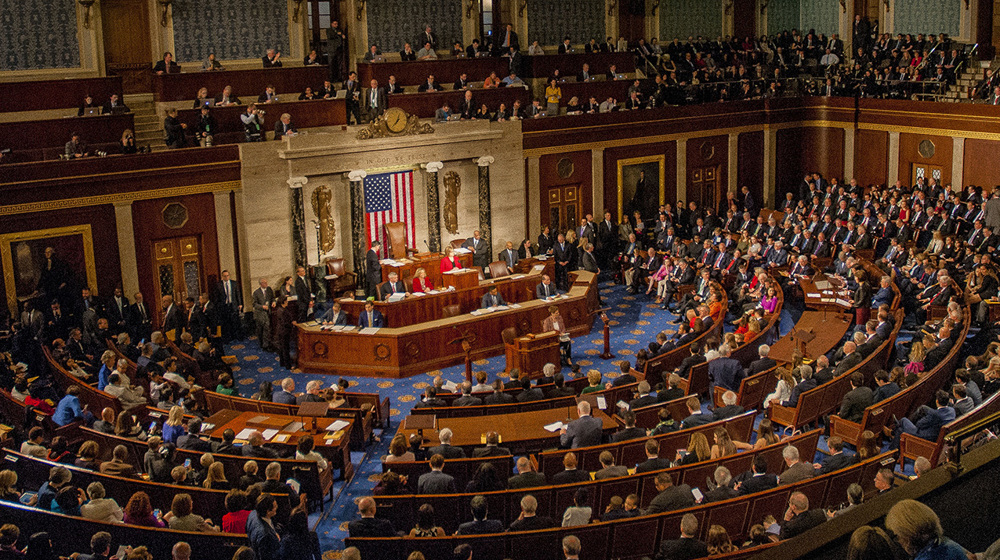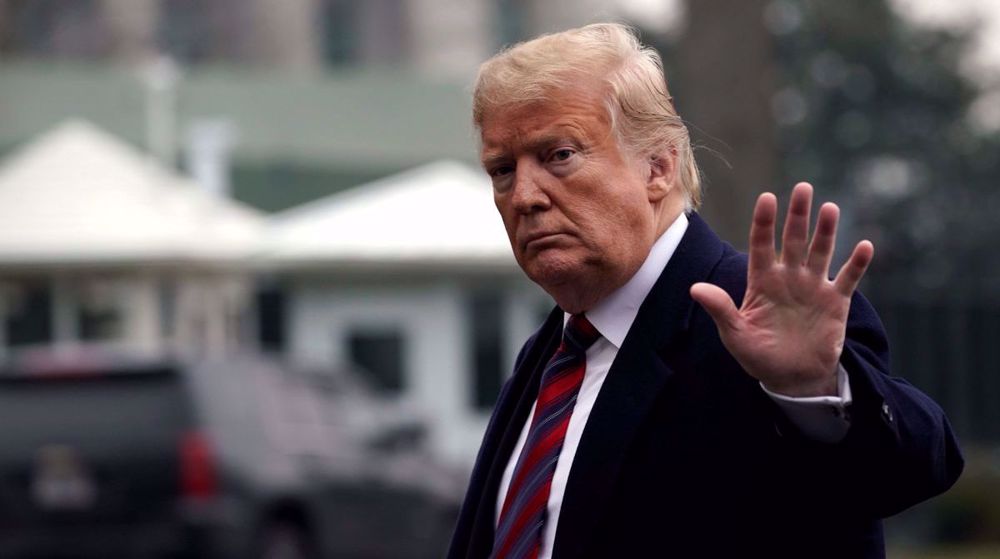How will Trump’s COVID-19 diagnosis impact race, presidency?
US President Donald Trump’s diagnosis with COVID-19 threatens to seriously imperil his already stumbling reelection campaign, forcing the president – who is down in national polls-- to cancel his public schedule in the crucial final month of the race.
Trump is being treated at Walter Reed National Military Medical Center for COVID-19 and has begun receiving an anti-viral drug, his doctor said Friday night, less than 24 hours after the president announced that he and his wife, Melania Trump, had tested positive for the coronavirus.
The news of Trump’s infection has thrown the race into turmoil.
The president's path to reelection was already fraught with difficulty and required a fundamental shift in strategy and direction.
Trump had been scheduled to tour the country, hold rallies, highlight a perceived economic recovery, and argue that he had successfully contained the coronavirus.
The president, who is medically vulnerable due to his age and being obese, has now promised to quarantine, a dramatic shift after months of mocking his Democratic challenger Joe Biden for wearing a mask on the campaign trail.
Trump had spent months defying science and downplaying the threat of the virus that has killed more than 207,000 people. Instead, the president had been pushing a message of economic optimism and reopening of the country.
As recently as Tuesday, Trump dismissed the risk of holding large, crowded campaign events where most of his supporters do not wear masks. “We’ve had no negative effect, and we’ve had 35 to 40,000 people at some of these rallies.”
The COVID-19 diagnosis may have an impact on voter’s perceptions -- especially those who already had misgivings about Trump’s handling of the pandemic -- in the final month of the campaign when candidates make their final appeals to the American people.
In particular, the president’s inability to safely campaign in key battleground states will put his reelection in danger.
Trump trails Biden by about 8 percentage points nationwide and is behind in several key swing states, including Pennsylvania, Ohio, Arizona, North Carolina, Michigan and Wisconsin.
How will Trump's illness affect presidency?
The virus can take several days to manifest fully and the impact that Trump’s infection will have on the presidency will much depend on the severity of his illness.
Vice President Mike Pence can step in to temporarily take over should Trump be incapacitated or die in office. Pence, 61, tested negative for the coronavirus on Friday.
Under the 25th Amendment of the Constitution, presidents can voluntarily designate powers to their vice presidents if they become seriously ill or are unable to discharge their duties.
If Trump became gravely ill, he could notify the House and the Senate that he was unable to perform the duties of his office and transfer his authorities to Vice President Pence, who would become acting president, until the president is fully recovered.
Other likely scenarios will be far more complicated and shrouded in legal uncertainty, including one in which Trump cannot exercise his duties but refuses to relinquish the office, or wins reelection but cannot effectively serve.
On Friday afternoon, as the president was expected to leave for hospital, a White House spokesman said Trump would remain in power. “No transfer,” he said. “The president is in charge.”
House Speaker Nancy Pelosi, 80, said on Friday that the right plans were in place should they become necessary.
“Continuity of government is always in place,” she said on MSNBC. “I always say it’s a relic of the past, but nonetheless, they say we have our job we have to do, and this is what we’ll do.”
For months, Trump has refused to commit to peaceful transition of power should he lose the November 3 election. He has raised doubts about the integrity of the electoral process, insisting that the only way for him to lose would be if the election was rigged.
National security implications?
The uncertainty surrounding Trump’s health has also raised fears of a potentially looming threat to national security.
The Pentagon along with a number of current and former national security officials rushed to reassure the public that there are mechanisms in place to deal with instability in situations like this.
"There's no change to the readiness or capability of our armed forces. Our national command and control structure is in no way affected by this announcement," Jonathan Hoffman, assistant to the secretary of defense for public affairs, said in a statement on Friday.
"The US military stands ready to defend our country and interests," he added.
While defense officials attempted to alleviate concerns of a national security crisis, Trump’s illness presents a challenge for those charged with protecting the US from foreign and domestic threats.
"[It] only makes that already chaotic system more chaotic," John Gans, a former Pentagon speechwriter told the CNN, adding that that Trump’s leadership style may increase the risks of a "total breakdown in decision making in government.”
The Year That Was: Wars, genocide, protests, scandals – events that defined 2025
Iran, Oman foreign ministers stress confronting sources of unrest in region
VIDEO | Gaza named deadliest place for journalists in 2025
VIDEO | Policy paper sparks debate over US intentions in Tunisia
Khaleda Zia, Bangladesh’s first female prime minister, dies at 80
Iran vows ‘harsh response’ to any aggression
Russia warns of response to Ukrainian drone attack on Putin's residence
Iran sets decade-long plan to raise oilseed self-sufficiency
















 This makes it easy to access the Press TV website
This makes it easy to access the Press TV website